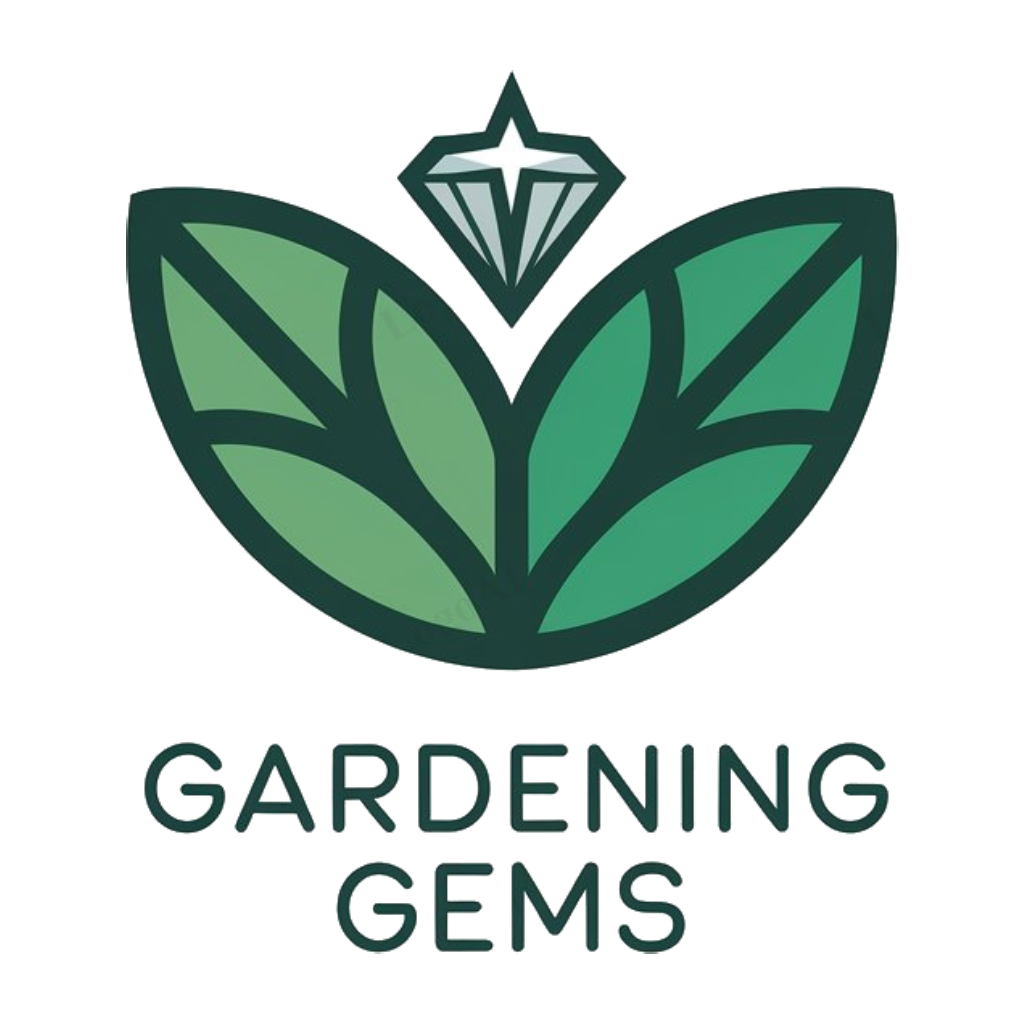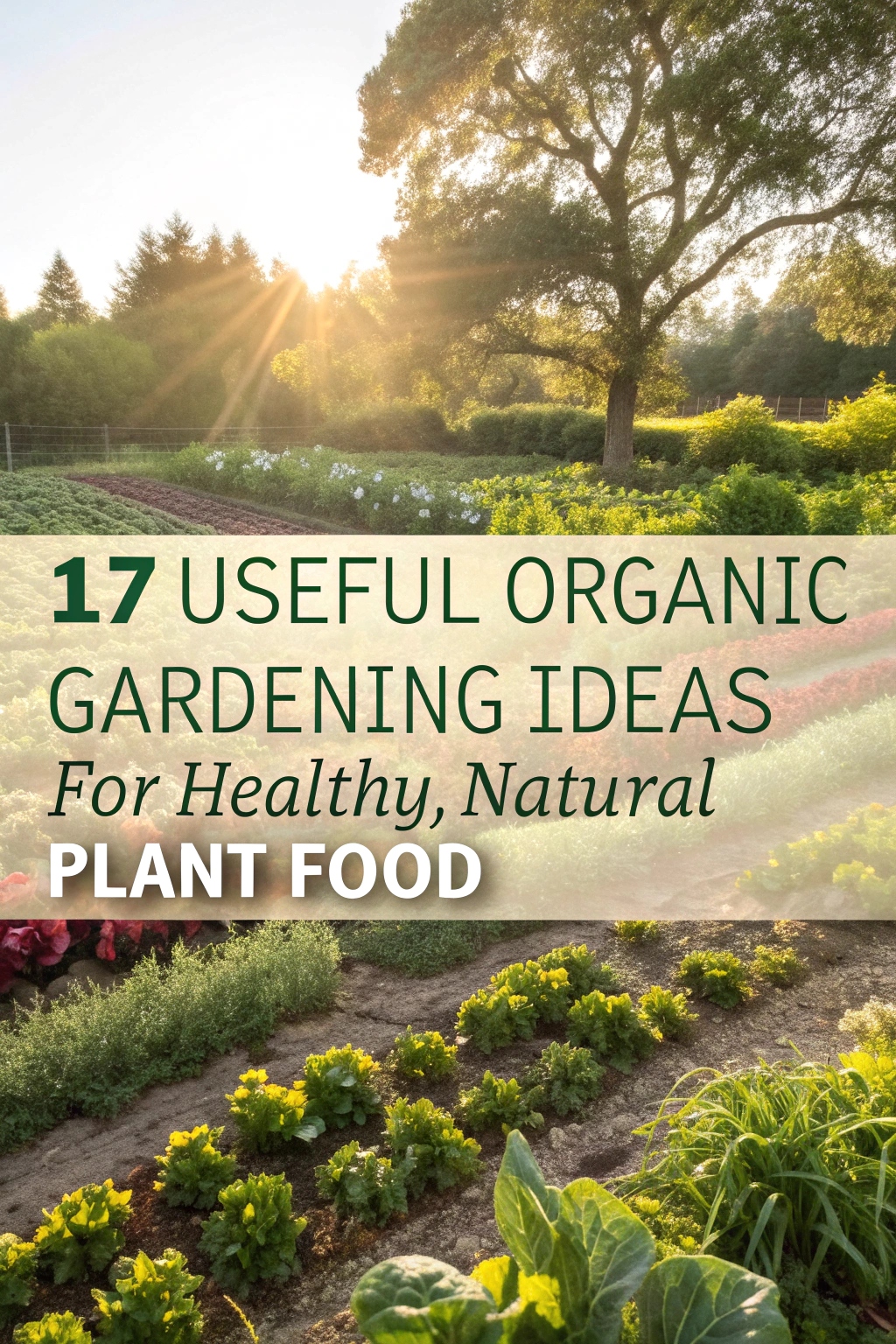As more people learn about the benefits of organic gardening, it’s becoming very popular. You’re taking a great step towards growing healthier plants by looking into organic gardening. This is a wonderful way to make your plants strong and happy.
Organic gardening is fun and easy to do, and you can start with simple things like composting and natural fertilizers. By using these methods, you’ll create a happy home for your plants to grow in. You’ll discover 17 useful ideas to make your garden the best it can be, and it’s an exciting journey to start!
Building a Compost Pile
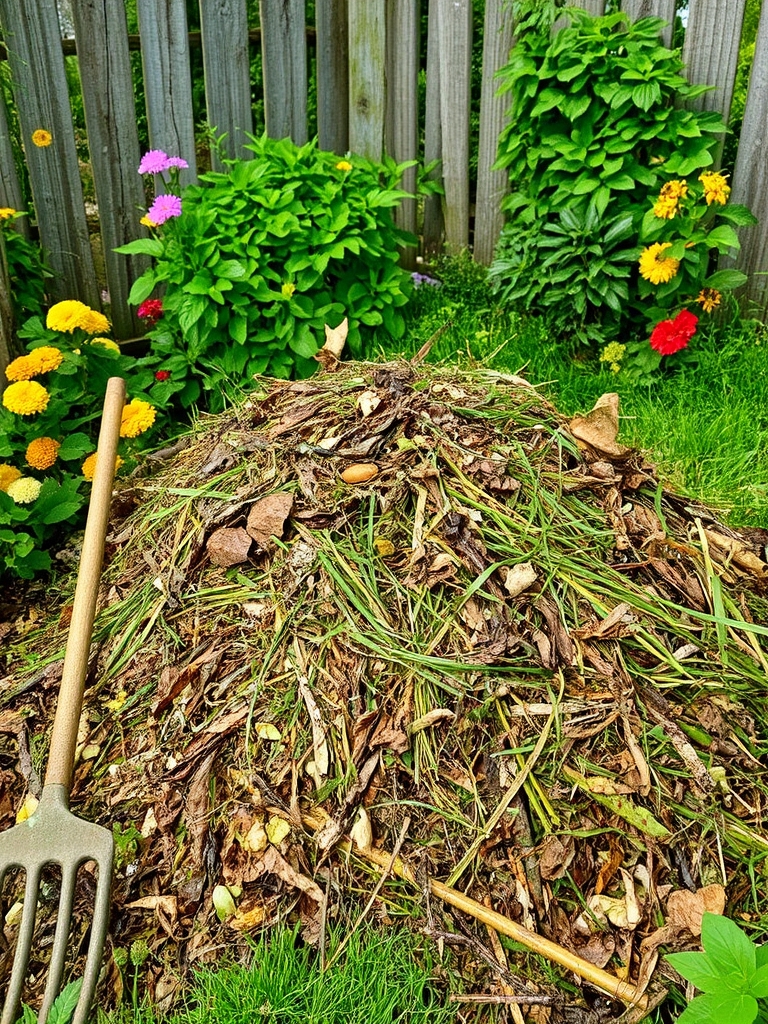
Building a compost pile involves layering organic materials like leaves, food scraps, and grass clippings with soil and other amendments. The pile is typically three to four feet wide and high, with a mix of “green” and “brown” materials to facilitate decomposition and create nutrient-rich soil for gardening. Regular turning aids the process.
Using Manure as Natural Fertilizer
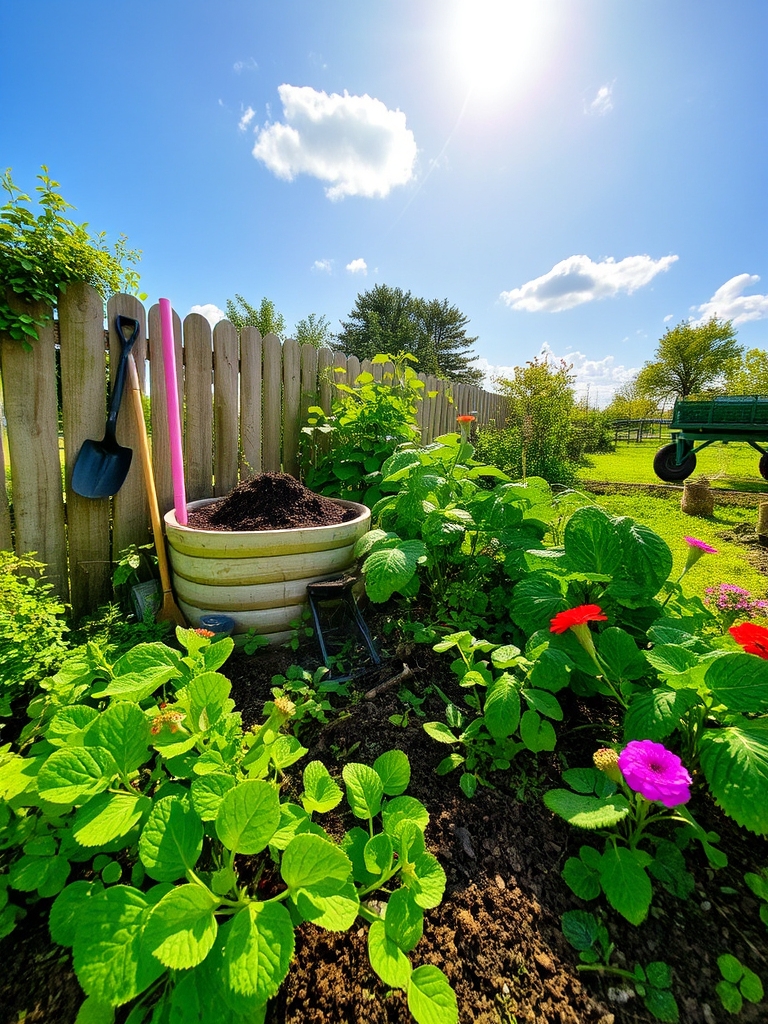
Using manure as natural fertilizer is an effective way to promote healthy plant growth. Rich in nutrients, manure can improve soil structure and increase crop yields. When properly composted, it reduces odors and pathogens, making it a safe and eco-friendly alternative to synthetic fertilizers for organic gardening. It’s a valuable resource for gardeners.
Green Manure for Soil Enrichment

Green manure is a natural way to enrich soil by planting specific crops that add nutrients and organic matter. Legumes, grasses, and other plants are used to improve soil fertility, structure, and overall health. As they decompose, they release nutrients, increasing the soil’s water-holding capacity and supporting beneficial microorganisms, creating a fertile ground for future crops.
Creating a Balanced Ecosystem

Creating a balanced ecosystem in your organic garden involves promoting biodiversity and allowing plants and organisms to coexist in harmony. This can be achieved by planting a variety of crops, incorporating compost and natural fertilizers, and avoiding chemical pesticides, which can harm beneficial insects and microorganisms that support a thriving garden ecosystem.
Natural Pest Control Methods
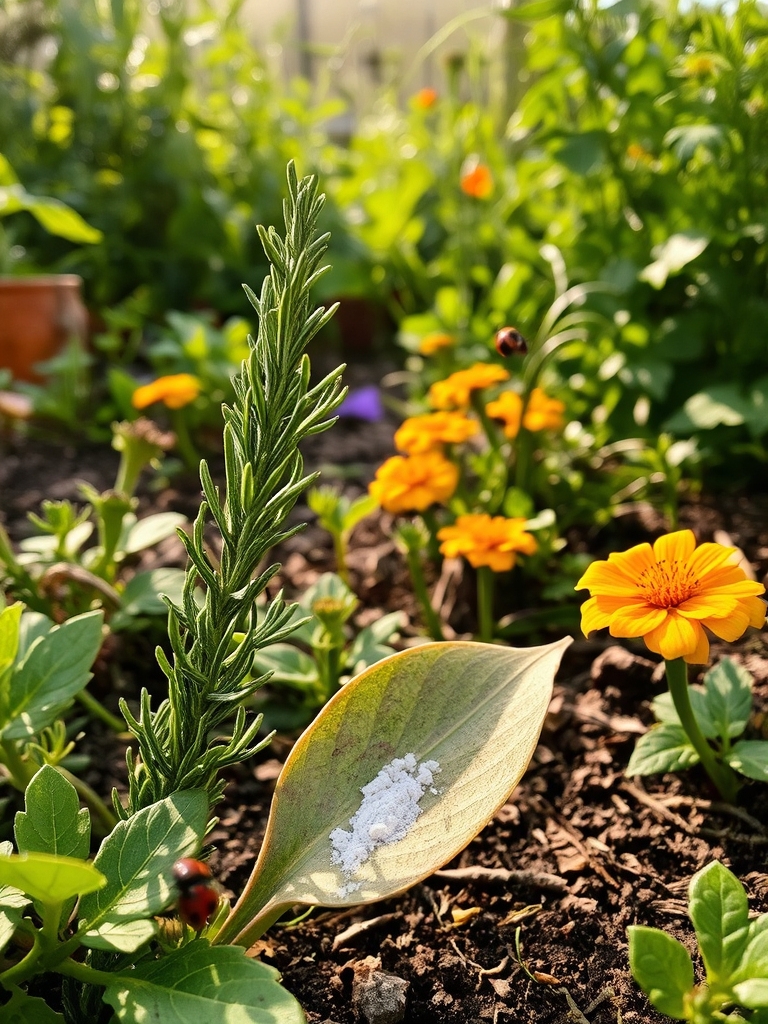
Natural pest control methods involve using organic substances to deter pests, such as neem oil, insecticidal soap, and diatomaceous earth. These methods target specific pests, reducing harm to beneficial insects and the environment. Companion planting and crop rotation also help control pests by disrupting their habitats and life cycles, promoting a balanced ecosystem in the garden.
Organic Soil Amendments
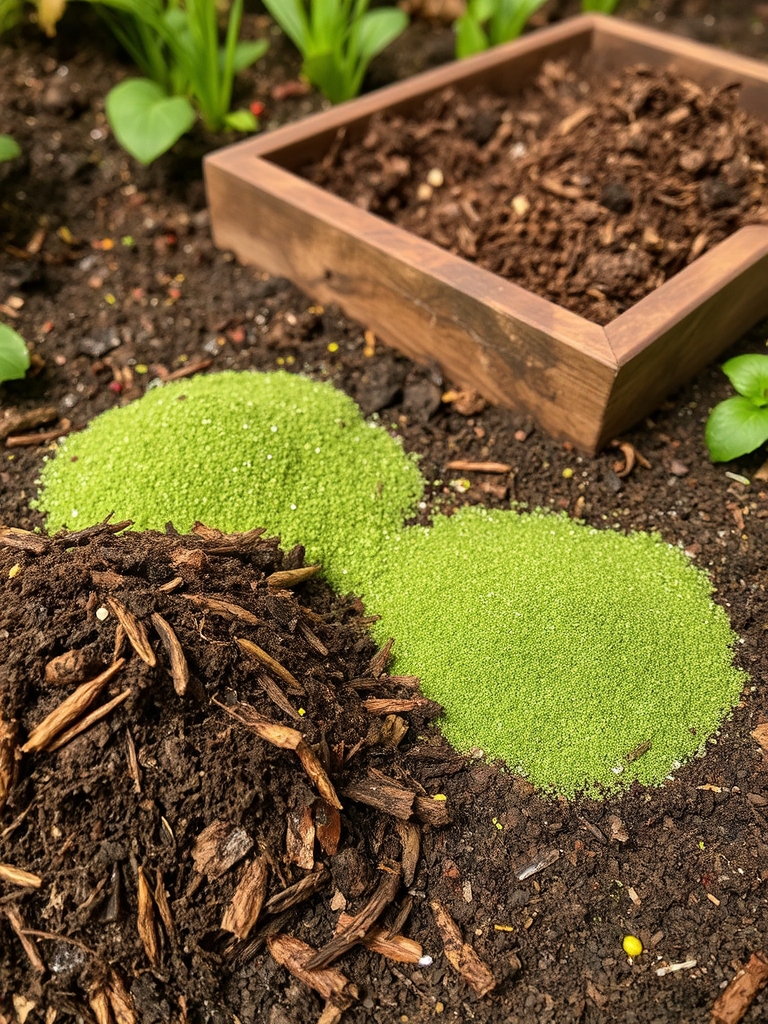
Organic soil amendments enrich soil naturally, improving its structure and fertility. Compost, manure, and green sand are popular choices, providing essential nutrients for healthy plant growth. These amendments promote beneficial microbial activity, increase water retention, and support overall soil health without the use of synthetic chemicals or fertilizers. They are a key component of organic gardening practices.
Making Your Own Potting Mix
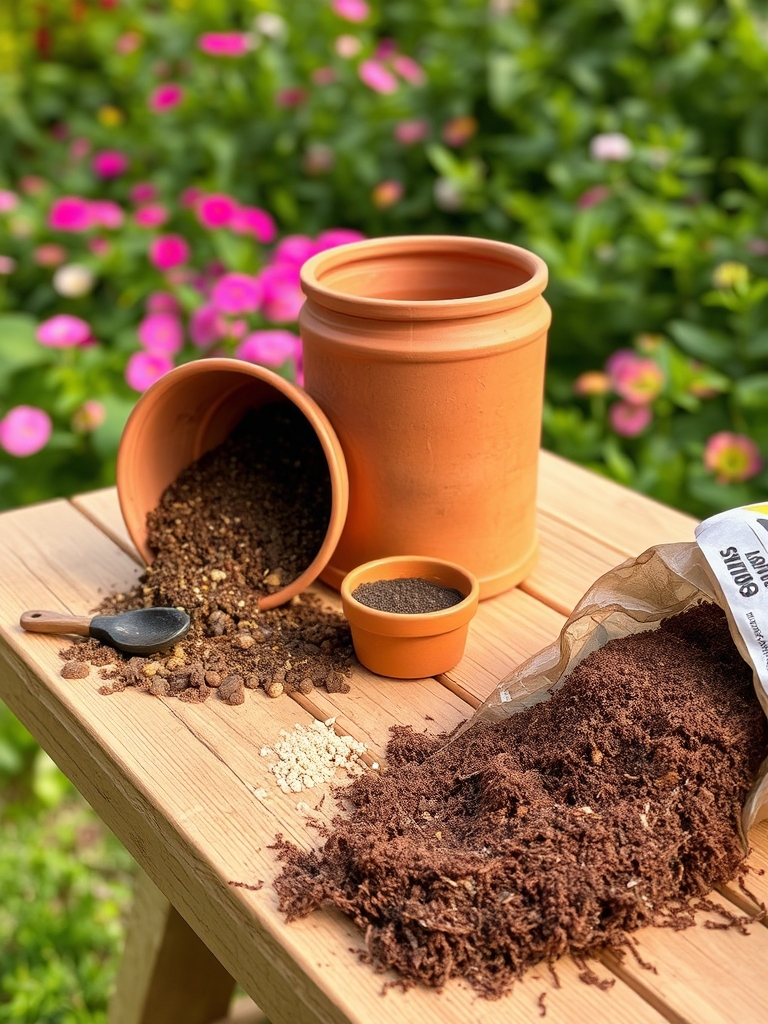
Making your own potting mix allows for customization to specific plant needs. Combine peat moss, vermiculite, and perlite for a well-draining mix. Add compost or worm castings for nutrient-rich soil. This homemade blend can be tailored to acidic, alkaline, or neutral pH levels, promoting healthy root growth and ideal plant development in your organic garden.
Utilizing Kitchen Scraps

Utilize kitchen scraps to create nutrient-rich compost for your organic garden. Save vegetable peels, fruit rinds, and coffee grounds to mix into your soil, providing essential nutrients for healthy plant growth and reducing waste sent to landfills. This eco-friendly approach fosters a sustainable gardening practice.
Growing Cover Crops

Growing cover crops is a beneficial practice in organic gardening, as it enriches the soil with nutrients and prevents erosion. Cover crops like legumes, grasses, and clover help to improve soil health, increase fertility, and attract beneficial insects, ultimately enhancing the overall productivity of the garden. They can be planted between crop cycles.
Beneficial Microorganisms for Plants

Beneficial microorganisms for plants promote healthy growth and development. These microorganisms, such as mycorrhizal fungi and nitrogen-fixing bacteria, enhance nutrient uptake, improve soil structure, and increase plant resistance to disease. They can be introduced to the soil through natural means or added as supplements to fertilizers, ultimately leading to a more resilient and thriving garden ecosystem.
Homemade Organic Fertilizers

Homemade organic fertilizers offer a cost-effective and sustainable alternative to synthetic options. Compost, manure tea, and worm casting are popular choices, providing essential nutrients for plant growth. These natural fertilizers promote healthy soil biota, improve soil structure, and support overall garden ecosystem balance, reducing reliance on chemical-based products.
Using Epsom Salt in Gardening

Epsom salt can enhance plant growth and improve soil health. It provides essential magnesium and sulfur, reducing transplant shock and promoting root development. Spraying or mixing Epsom salt with water can help boost flower and fruit production, and alleviate common garden problems like yellowing leaves and blossom end rot.
Crop Rotation for Nutrient Management
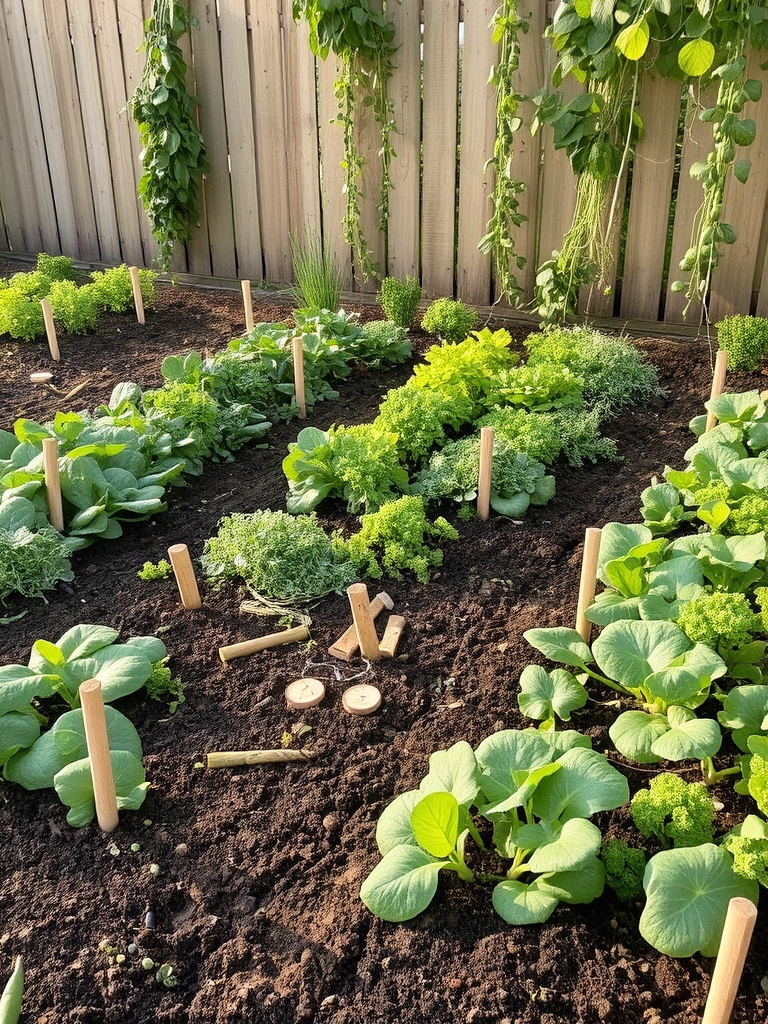
Crop rotation is a vital technique for maintaining soil fertility and structure. By changing the types of crops grown in a particular area, gardeners can replenish nutrients, reduce soil erosion, and break disease and pest cycles, ultimately leading to healthier plants and a more sustainable garden ecosystem over time.
Natural Ways to Control Weeds
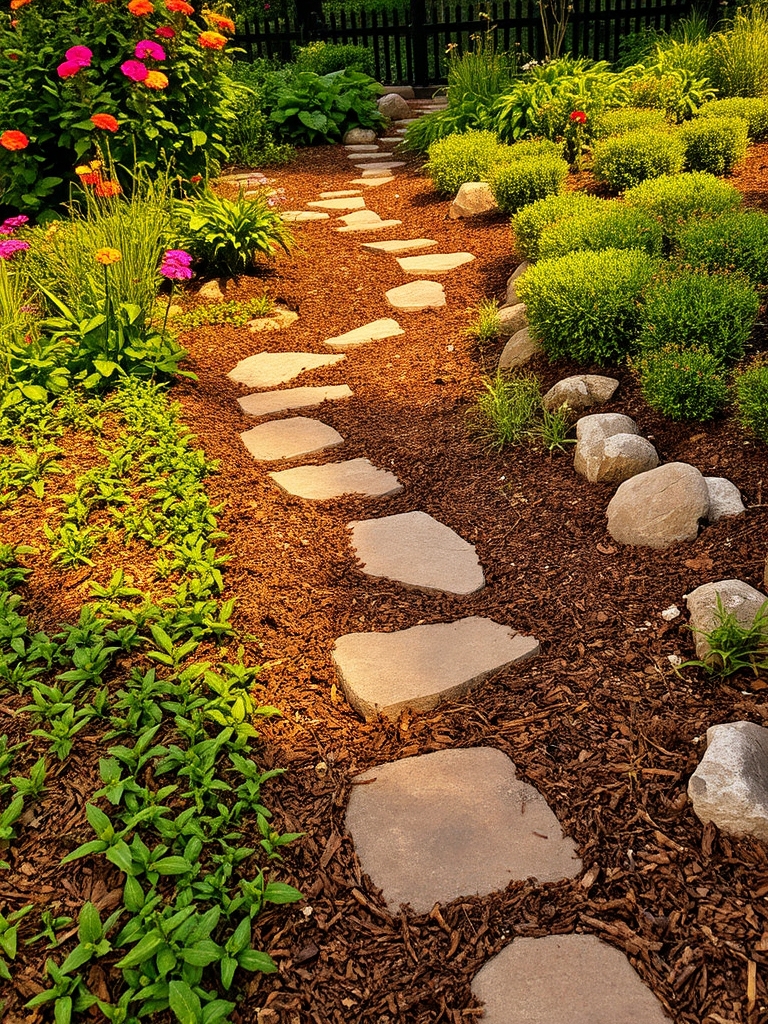
Natural methods to control weeds include mulching, hand-weeding, and using boiling water to kill weeds without harming the environment. Additionally, using landscape fabric or newspaper barriers can prevent weeds from growing, reducing the need for herbicides and maintaining a healthy organic garden ecosystem. These methods promote sustainability and eco-friendliness.
Integrating Companion Planting

Companion planting is a technique where different plants are grown together to improve growth, flavor, and pest resistance. By integrating companion planting into your organic garden, you can create a balanced ecosystem that promotes healthy plant development and reduces the need for pesticides and fertilizers, leading to a more sustainable gardening practice.
Using Worm Composting for Nutrients
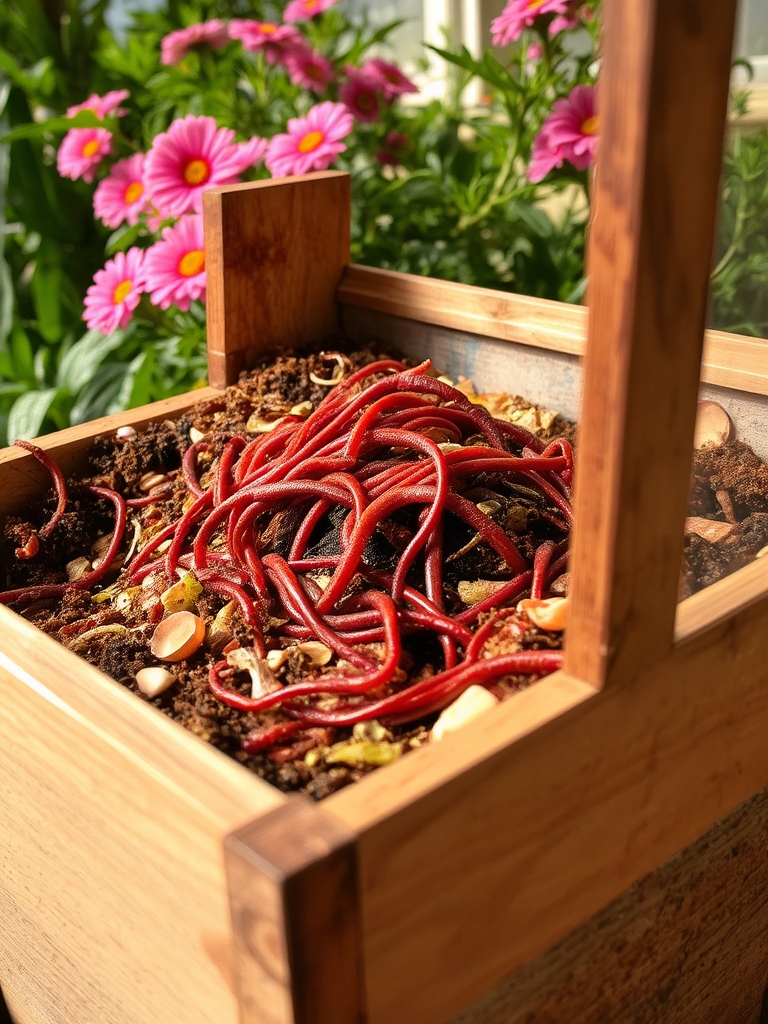
Worm composting, also known as vermicomposting, uses worms to break down food waste into a nutrient-rich fertilizer. This process creates a natural and odorless compost that can be used to enrich soil and promote healthy plant growth. Worm composting is a low-maintenance and efficient way to recycle waste and produce a valuable resource for organic gardening.
Leaf Mould as a Soil Conditioner
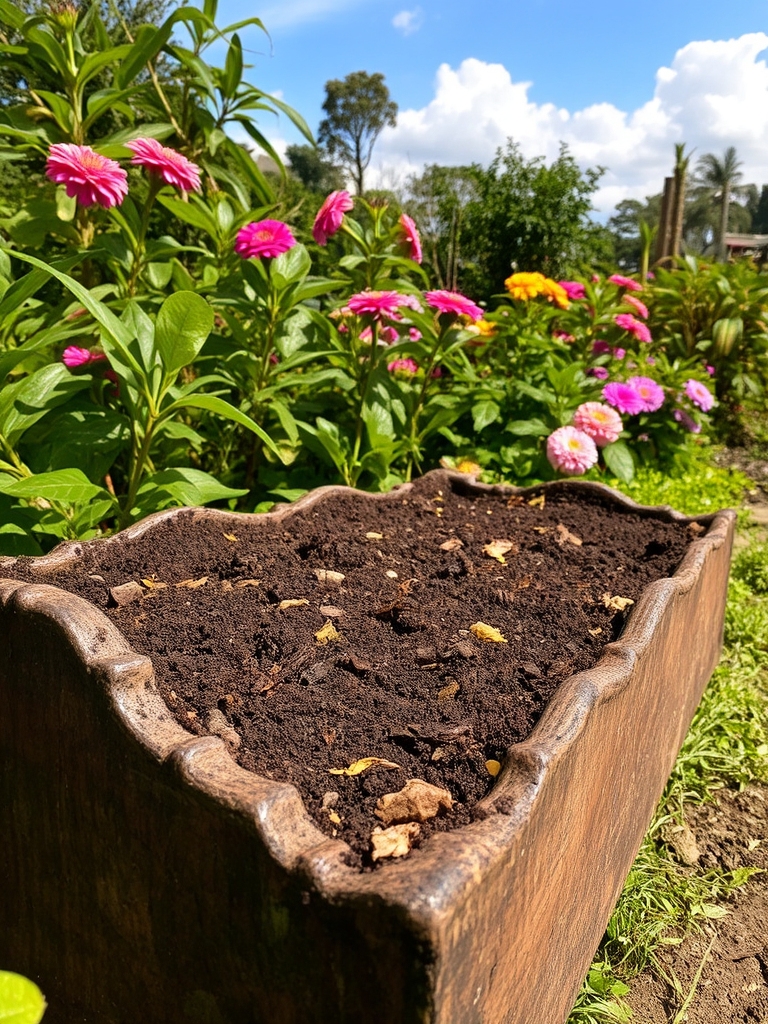
Leaf mould, a natural soil conditioner, is created by decomposing leaves. Rich in nutrients and humus, it improves soil structure, increases water retention, and supports healthy microbial activity, benefiting plant growth and overall garden ecosystem. It can be added to potting mixes, used as a mulch, or incorporated into garden beds to enhance fertility and drainage.
Conclusion
You’re now a master gardener, equipped with 17 organic gardening ideas to boost plant health. As you “break the mold” with these techniques, your garden will thrive like a selfie-taking influencer. With composting, companion planting, and natural pest control, you’ll be the envy of all your friends, reaping a bounty of fresh, natural food from your eco-friendly oasis.
